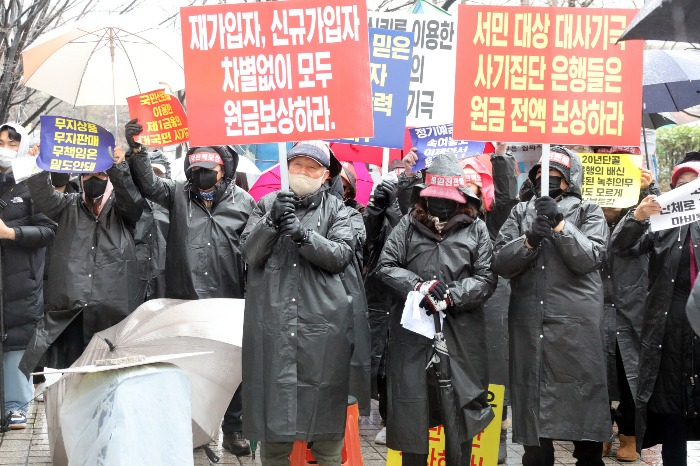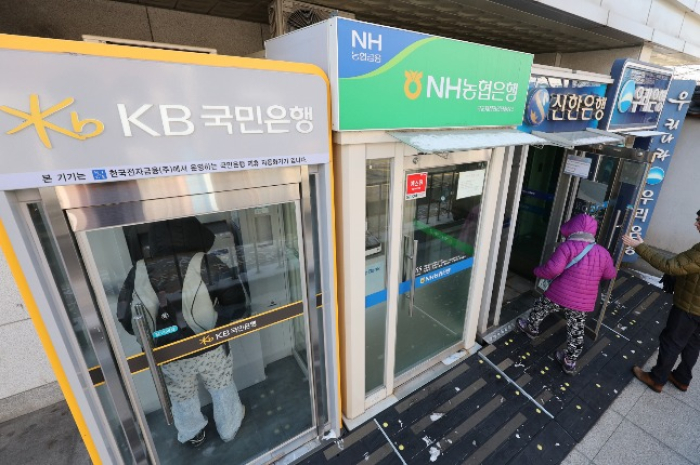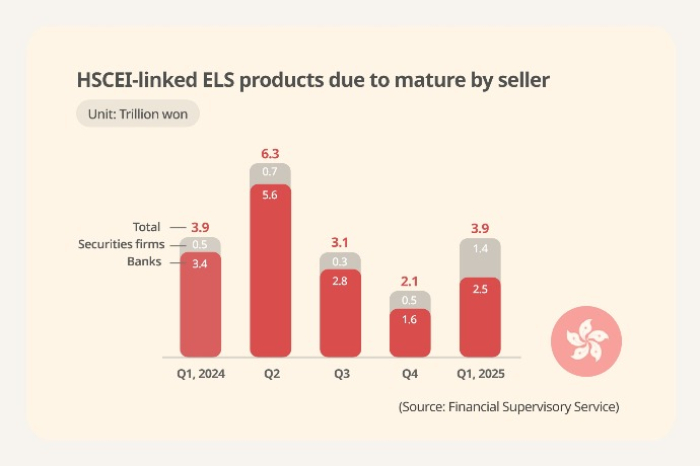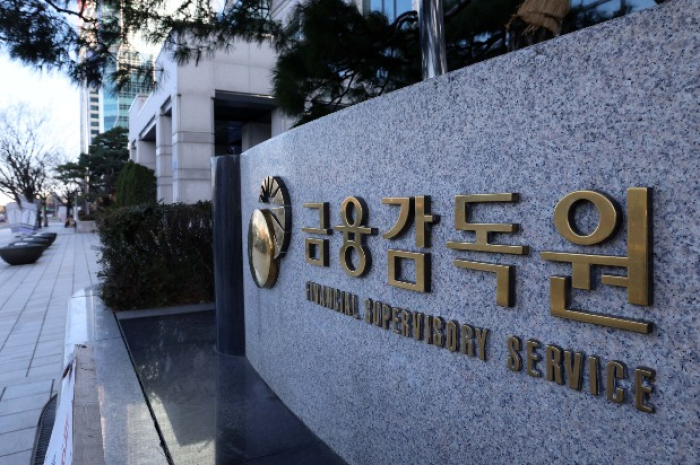Korean stock market
S.Korea launches official probe into HSCEI-tied ELS sale
The country’s financial authorities uncovered some reckless internal policies leading to the excessive sale of risky derivatives
By Jan 08, 2024 (Gmt+09:00)
5
Min read
Most Read
LG Chem to sell water filter business to Glenwood PE for $692 million


KT&G eyes overseas M&A after rejecting activist fund's offer


Kyobo Life poised to buy Japan’s SBI Group-owned savings bank


StockX in merger talks with Naver’s online reseller Kream


Meritz backs half of ex-manager’s $210 mn hedge fund



South Korea’s financial authorities have opened an official probe into local banks and securities firms’ potential misselling of equity-linked securities (ELS) tracking the HSCEI, or the Hang Seng China Enterprises Index, heralding possible sanctions on such derivatives sellers.
The Financial Supervisory Service (FSS) on Sunday announced it would launch official on-site inspections on the sellers of the HSCEI-tied ELS products in phases starting Monday after its preliminary investigations discovered that some banks and brokerage houses had changed their internal standards to encourage the sale of risky derivatives.
The FSS will inspect five banks — KB Kookmin, NongHyup, Shinhan, Hana and Standard Chartered Bank Korea — and seven brokerage firms — KB Securities Co., NH Investment & Securities Co., Mirae Asset Securities Co., Samsung Securities Co., Shinhan Securities Co., Kiwoom Securities Co. and Korea Investment & Securities Co., it said.
KB Kookmin Bank and Korea Investment & Securities, the top sellers of the HSCEI ELS products, are the first two facing the on-site inspection.
The FSS probe comes after its earlier investigations taking place late last year found that some banks and brokerages had reflected ELS sales into employees’ performance reviews and jacked up the limit of ELS sale targets despite high volatility.

In November and December, the Korean financial authorities reviewed local financial institutions’ sales of the HSCEI-linked ELS products after receiving complaints that a majority of the ELS products sold to retail investors, worth about 5 trillion won ($3.9 billion), would face massive losses upon maturity in the first half of this year.
Should the financial watchdog find any mismanagement or legal violations related to such ELS sales, it would hold those banks or securities accountable for the losses with stern actions, it said.
UNAVOIDABLE HUGE LOSSES
Amid the ongoing concerns about the Chinese economy, Chinese shares listed on the Hong Kong bourse have fallen sharply since last year, placing Hong Kong’s main stock index, the HSCEI, among the world’s worst-performing gauges.
The HSCEI has more than halved to the 5,600 level since early 2021 when it was traded above 12,000 points. Most of the ELS products with three-year maturity were sold in 2021.
As of November last year, the total outstanding balance of the HSCEI-tied ELS products stood at 19.3 trillion won, of which 79.8%, or 15.4 trillion won, will mature this year. In the first half alone, 10.2 trillion won worth of the ELS products will expire.
Some investors already lost about 10 billion won in total from their HSCEI ELS investments upon their maturity as of Friday last week. More severe damages are foreseen starting this week.

ELS are derivative products, the returns of which are determined based on the performance of underlying assets such as a stock index or individual shares.
ELS investors are entitled to promised returns if the underlying asset’s price stays above a certain level, or knock-in level, until maturity, usually three years.
However, if the price of underlying assets falls below the knock-in level, usually 50% of the price at the time of the ELS purchase, investors are asked to accept the entire losses incurred.
POSSIBLE MISMANAGEMENT
Following an incident in 2019 when banks’ derivative-linked funds (DLFs) tracking foreign interest rates caused mom-and-pop investors, mostly retired people, huge losses, the authorities prohibited banks from selling high-risk derivatives exceeding their limits.
KB Kookmin Bank, largely unscathed from the 2019 DLF incident, was allowed to sell 18 trillion won worth of ELS products – the largest amount among the five major banks.
Room for the sale of ELS products for four other banks at the time was 9 trillion won each for Shinhan and Hana, 7 trillion won for Woori and 4 trillion won for NongHyup.
However, KB Kookmin Bank changed its internal rule that originally limited the sale of ELS products to up to 50% of the original sale target if the index volatility rises above 30%, according to the FSS preliminary inspections, FSS Deputy Governor Park Chung-hyun said in a briefing on Sunday.

He added that following the change, the bank was allowed to sell ELS products by up to 80% of the sale target, leading to excessive ELS sales.
KB Kookmin Bank also gave higher scores to employees who sell high-risk products like equity-link trust (ELT) during their performance reviews, encouraging its employees to sell more ELS products. The bank was also suspected to have misled the final profit guidance on ELS products.
The FSS also discovered that some banks and brokerages have failed to keep investor contracts for 10 years, which was mandated by the law.
“The FSS will come up with compensation guidelines after it soon determines whether there is any mis-selling practice or legal violation (in ELS sales),” said Park.
However, some raised an issue with compensation for ELS losses, saying that about 90% of the HSCEI ELS investors were those who renewed their contracts.
“It is unfair to hold only sellers like banks accountable (for losses) because most of (ELS) investors are old,” said an unnamed vice president of a local commercial bank.
Investors aged 65 years and older made up 5.4 trillion won, or 30.5% of 17.7 trillion won worth of the HSCEI ELS products outstanding.
Of them, more than 90% have invested in derivative-linked securities before, suggesting that they might have been aware of the potential risk of losing the principal.
Write to Hyun-Woo Kang and Bo-Hyung Kim at hkang@hankyung.com
Sookyung Seo edited this article.
More to Read
-
 Korean stock marketKorean ELS investors biting nails over sharp falls in Hong Kong shares
Korean stock marketKorean ELS investors biting nails over sharp falls in Hong Kong sharesNov 24, 2023 (Gmt+09:00)
3 Min read -
 Alternative investmentsS.Korea's DLS incurring losses due to stock slump exceed $800 billion
Alternative investmentsS.Korea's DLS incurring losses due to stock slump exceed $800 billionJan 09, 2023 (Gmt+09:00)
1 Min read -
 Overseas derivativesBrokerage firms enjoy rising bets on global derivatives
Overseas derivativesBrokerage firms enjoy rising bets on global derivativesApr 14, 2021 (Gmt+09:00)
3 Min read
Comment 0
LOG IN


